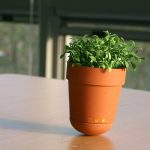Urban gardening is as important as other forms of gardening, and you should give extra care to the well-being of the plants since they are growing in a man-made environment.
Now you may wonder how to ensure greater productivity and better health to gardens—well, you have come to the right place, as we are going to discuss this issue.

In this article, we have shortlisted ten tips that you should keep in mind while urban gardening:
-
The conditions of your soil
When an urban gardener thinks that they have poor soil—well, they are usually right about this. The urban area is poor in structure and compacted in quality.
Upon selecting the garden area, assess the soil for determining the type of soil, pH, availability of phosphate and potash and organic matter content.
There are many soil testing equipment available in the market, or you can simply send a sample to a laboratory.
-
Compost is fundamental
Compost can be really useful in soil conservation and reduction of waste. It results in greatly improving the soil structure, promoting plant growth and helping soil store essential nutrients to ensure their availability to plants.
Research has shown that compost makes plants stronger against diseases, which is great for your garden.
-
Harvesting rain and conserving water are two ingredients
Yes, harvesting and conserving water will greatly help you in urban gardening.
Clean water is extremely important, especially in urban areas where there is amarked scarcity of the same. A good gardener will understand the importance of watering plants with clean water, and therefore, he will harvest and conserve.
Install rain gardens and rain barrels to adjust the mowing height to ensure greater penetration of water. There are many other conservation strategies about which you can learn from many articles uploaded online.
-
Use of organic fertilizers over chemical ones
Research has concluded that use of chemical fertilizers is more harmful than useful to plants. While they initiate quicker growth of plants, they decrease their resilience against diseases and increases their vulnerability to changes in weather.
Organic fertilizers, on the other hand, have both short-term and long-term impacts to the ecology of the soil. They work not as quickly as chemical fertilizers but they do not weaken the foundations of the plants and the soil.
To ensure greater sustainability in urban gardening, use organic fertilizers.
-
Preservation of existing natural resources and agriculture
Sustainability will help ensure greater productivity in your urban garden, but there are certain things you must keep in mind to achieve it, One such thing is thepreservation of existing agriculture resources.
For this purpose, techniques are many but usually include cover-cropping for adding nutrients back to the soil in order to substitute those who have harvested in crops; application of manure to promote better growth, etc.
Reducing the use of non-renewable resources in urban gardening can reduce a lot of pressure on these finite resources which humans have been using indiscriminately without any responsibility.
One way to preserve these resources is getting assistance from locals—you can conduct preservation of open lands available nearby for the sake of our future generation.
-
Understanding micro climate conditions
In order to have a healthy garden in harsh, urban settings, you must understand the microclimate conditions to take appropriate measures.
These conditions include sun orientation, air temperatures, air movement, topographical location, humidity, water-front exposure, paved surfaces like parking lots and roads, etc.
Once you have collected data on these conditions, you can tailor your gardening techniques to suit the requirements of the garden.
-
Selection of the right plant for your garden
This is a very common tip, but despite its hackneyed use, it is as important as any other tip we have just discussed. If the plants cannot grow to their fullest potential, there is no point growing them in the first place.
Native plants are generally the best candidates for growing as they are sufficiently adapted to local conditions. They are hardy and vigorous and capable of tolerating the ravages of weather with greater resilience.
When you grow native plants, you will find yourself investing less in irrigation and fertilization, and this way your urban gardening will set up an example of sustainable gardening.
-
Consider aquaponic and hydroponic gardening
It is a very useful tip if you really want to do urban gardening right.
Hydroponics involves the method of growing plants by providing asupply of all essential nutrients in the water supply of plants in a rather nutrient solution. It is basically nurturing plants without soil.
On the other hand, aquaponics involves the use of a nutrient solution which contains fish excrement. It is essentially the integration of aquaculture and hydroponics.
Both these techniques work wonders and have been extensively employed to generate greater gardening results in an urban setting.
-
Community participation
Community participation is the magical mantra for facilitating easier and better urban gardening. If you involve more people, you can create greater impact.
Community gardens need to be routinely maintained and we, as a community, can come together to boost their growth and preserve their health. Through participation, people will get to know each other more and may even come up with programs contributing more to the task of accomplishing healthy urban gardens.
-
Keep yourself updated
Urban gardening can be difficult, and thus, it becomes all the more important you keep yourself abreast of latest technological developments in the field of gardening.
Innovations have made gardening easier, and every year, more and more technologies are coming to ease our lives as gardeners. If you are not well-acquainted with recent developments, you are no good gardener.









